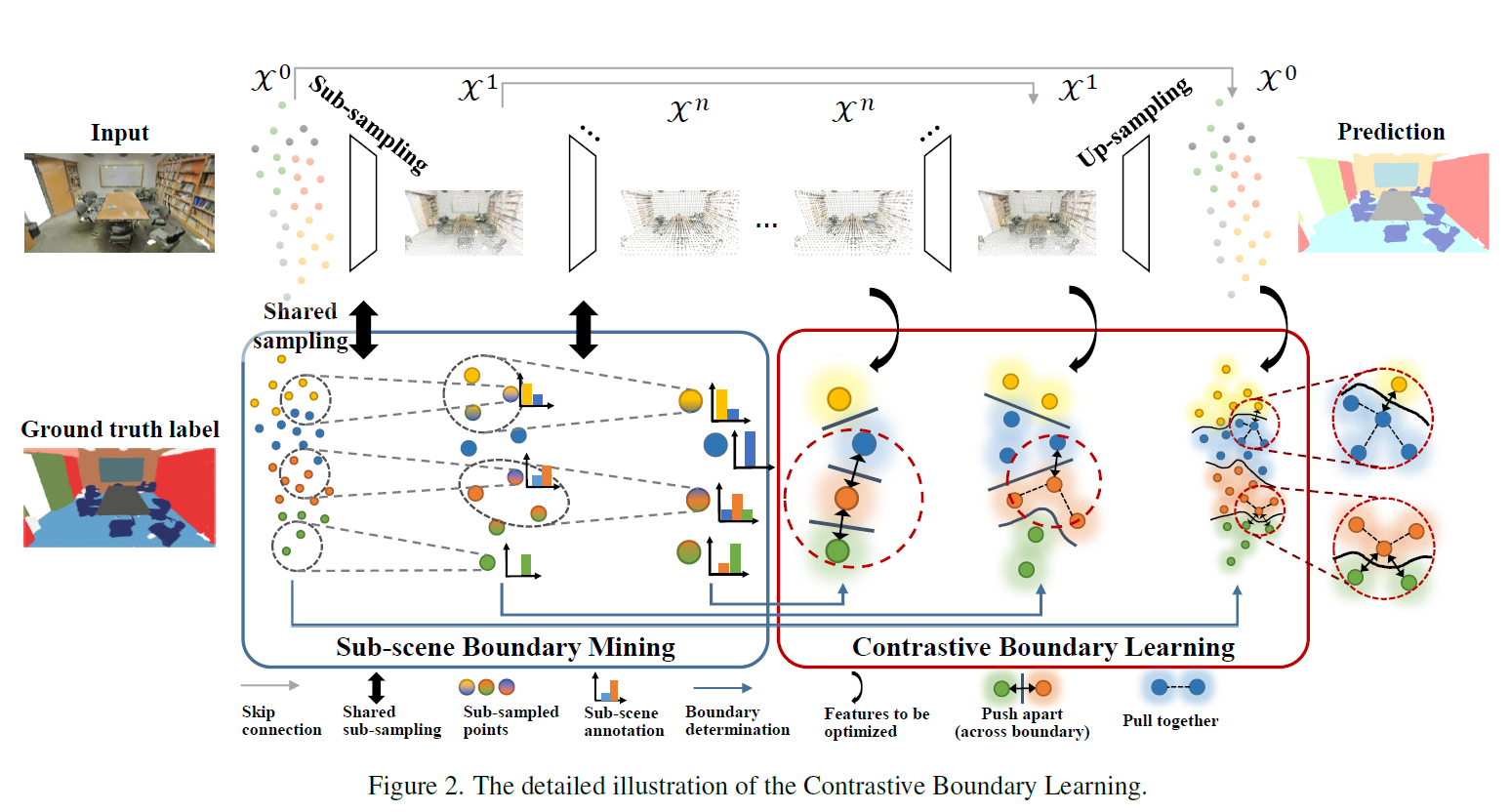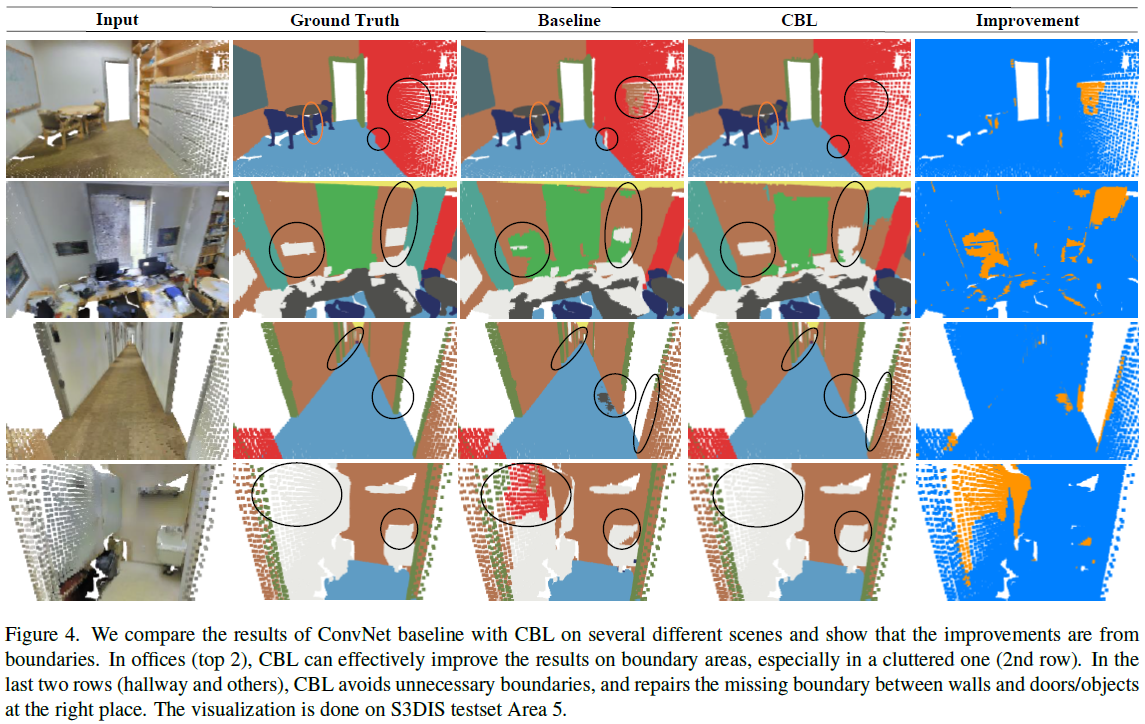By Liyao Tang, Yibing Zhan, Zhe Chen, Baosheng Yu, and Dacheng Tao
This is the implementation of our CVPR 2022 paper:
Contrastive Boundary Learning for Point Cloud Segmentation [arXiv]
If you find our work useful in your research, please consider citing:
@InProceedings{tang2022cbl,
author={Tang, Liyao and Zhan, Yibing and Chen, Zhe and Yu, Baosheng and Tao, Dacheng},
booktitle={2022 IEEE/CVF Conference on Computer Vision and Pattern Recognition (CVPR)},
title={Contrastive Boundary Learning for Point Cloud Segmentation},
year={2022},
volume={},
number={},
pages={8479-8489},
doi={10.1109/CVPR52688.2022.00830}
}
For point-transformer baseline, please follow pytorch/README.
For ConvNet and other baselines, please follow tensorflow/README.
Pretrained models can be accessed here, together with training and testing log. Choose the desired baseline and unzip into the corresponding code directory (tensorflow/pytorch) and follow the README there for further instruction.
S3DIS (Area 5)
| baseline | mIoU | OA | mACC |
|---|---|---|---|
| ConvNet + CBL | 69.4 | 90.6 | 75.2 |
| ConvNet + CBL (kl) | 69.5 | 90.9 | 75.3 |
| point-transformer + CBL | 71.6 | 91.2 | 77.9 |
Codes are built based on a series of previous works, including:
KPConv,
RandLA-Net,
CloserLook3D,
Point-Transformer.
Thanks for their excellent work.
This repo is licensed under the terms of the MIT license (see LICENSE file for details).

